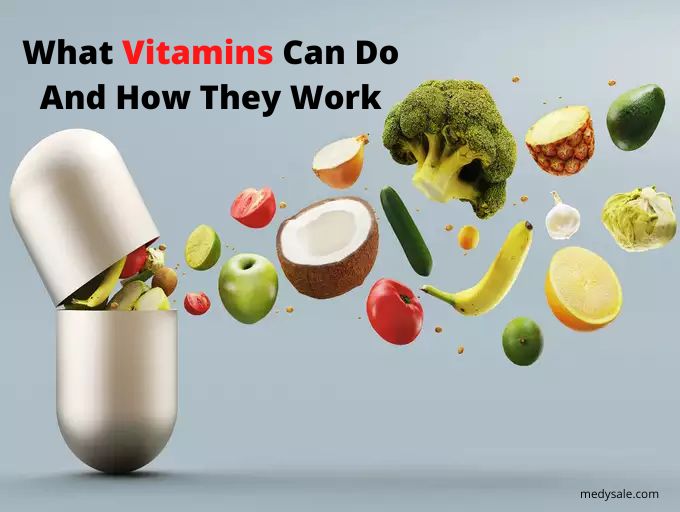The most important concern regarding nutrients is nutrient misfortune. Many medical professionals warn about the dangers of nutritional misfortune and the side effects. Chronic weakness can also be caused by excessive nutrients.
When it comes to nutrients, nutrient misfortune can be a serious concern. Many medical professionals warn about the dangers of not receiving enough nutrients. There are also indications that nutrient deficiencies can be a sign of disease.
Although it is possible to indulge in nutrients, it is not a good idea. If you take a multivitamin each day and follow a healthy eating pattern, you could be overconsuming nutrients.
If you consume a lot of nutrients and minerals, it could be dangerous for your health. An unneeded nutrient admission could lead to a variety of medical problems. Fildena 100 or Cenforce 100 can help you resolve your medical issues.
What are the effects of an excessive vitamin intake?
You should take in a lot of nutrients and minerals. This is especially true if you eat high-quality food. Bananas contain a lot of potassium, so excessive banana consumption can lead to severe medical conditions. To get the recommended 3,500 mg of potassium and 42 bananas that can be contaminated by a dietary potassium treatment, you should not eat more than seven bananas per day.
Many people accept that nutrients can all be used and that they are protected. Contrary to popular belief, controlled testing of nutrient usage has shown that higher levels of nutrients A, D, and Folic corrosive can cause more harm than good as a rule.
Different Vitamin Types
There are two types of nutrients: water-soluble and fat-solvent.
Water-Soluble Vitamins
These nutrients are quickly used by the body, and all waste is eliminated through the urine. Water-solvent nutrients are less harmful than those that are stored in large quantities in the muscles of the body.
Public Vitamins are Water Soluble Vitamins
Although these nutrients have not been shown to cause any damage, it is possible to possess large quantities. Unreasonable amounts of vitamin B3 may cause skin to blush, and vitamin B6 could lead to problems in your legs or feet.
Fat-Soluble Vitamins
Fat nutrients cannot be dissolved in water and can be stored in fat cells. Hypervitaminosis can be caused by excessive intake of these nutrients.
The nutrients K, D, An are fat-solvent nutrients. The Recommended Dietary Assimilation is a guideline for how many supplements your body needs each day. The Common Upper Intake Levels, (UL), show the maximum amount of supplements anyone can consume. Some nutrients, such as vitamin K, have not reached poisonous levels even when taken in high doses. Liquor consumption does not affect Cenforce 150 and Cenforce200.
Some nutrients may not be protected if they are below an upper admission level. Additionally, a few medications can communicate with them to cause any type of damage, particularly for those who have hidden conditions. Your PCP may recommend that you take all nutrients and minerals.
There are potential dangers to eating excessive vitamins
Many water-solvent nutrients such as vitamin K are protected and do not have a defined line.
High amounts of the accompanying nutrients can pose a risk to your health. High doses of these nutrients or constant risk can make them dangerous.
Vitamin A
Vitamin A poisoning can lead to queasiness and cerebral pains. The daily limit is 3,000 mg.
Vitamin B3 (Niacin)
Adults can consume 35mg vitamin B3 daily. If you exceed this amount, side effects may occur: Stomach pain, liver damage, high blood glucose and skin flushing are all possible side effects. Malegra 200 and Tadalista 20 help men have a more difficult erection.
Vitamin B6 (pyridoxine)
Adults can consume 100mg of pyridoxine daily. Side effects of nutrient harmness include skin injuries, queasiness and indigestion, responsiveness to the stimuli, hyperesthesia, paraesthesia and paralysis.
Nutrient B9 (Folate)
Adults should not consume more than 1,000mg per day. Consuming more folate than recommended daily can lead to sickness, seizures, skin reactions, disarray, crabbiness, rest issues, stomach cramps, stomach problems, vitamin B12 deficiency, and other health problems.
L-ascorbic acid
Grown-ups can consume no more than 2,000 mg per day. L-ascorbic Acid poison can manifest as queasiness and runs. There is also an increased risk of developing kidney stones, stomach problems, loose bowels, and stomach issues. For people with diabetes and other genetic conditions, it can pose a risk.
Vitamin D
Vitamin D poisoning levels include hypercalcemia, calcium buildup and calcium deficiency. Vitamin D poisoning can cause nausea, vomiting, diarrhea, calcium stones, and even bone pain. Vitamin D deficiency can also cause unusual pulses, weight loss, and cravings. Adults should consume at least 100mg of vitamin D each day. Your wellbeing is greatly enhanced by nutrients such as Vega 100, Tadapox and other nutrients.
Vitamin E
Vitamin E acts as an anticoagulant. It can cause blood coagulation and blood diminishing issues. Grownups should not consume more than 1,100mg per day.
Is Too Much Vitamin Harmful for You?
Extreme cases of nutrient harm can lead to death. This is a fascinating fact. Organ harm and disappointment could be caused by excessive amounts of specific nutrients.
If you are unsure if you should start taking new nutrient supplements, consult your primary care physician.

